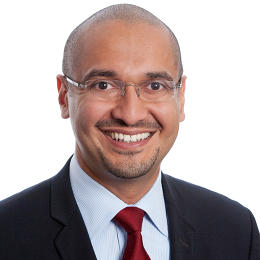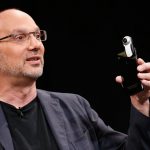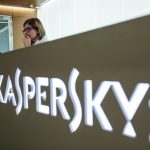Meet The New CEO Of The $22 Billion Genomics Company You’ve Never Heard Of
A simple blood test to detect early signs of cancer. A noninvasive way to screen pregnancies for common genetic conditions. An app store for your genetic information. Illumina, a San Diego-based gene-sequencing hardware and software behemoth with a market capitalization of $22 billion, is working on all these initiatives—and more.
Illumina casts a long shadow over the field of genomics, but it lacks the star power of a consumer-focused company like Silicon Valley genetic testing outfit 23andMe. That’s because Illumina operates behind the scenes, selling hardware and services to companies and research institutions. But that’s about to change if Illumina’s new CEO, serial entrepreneur Francis deSouza, has anything to do with it.
“We spent a decade selling instruments to researchers who are experts and understand genomics,” he tells me. “Now we’re seeing applications take off, which is a much bigger market for us.”
For those who aren’t familiar, Illumina makes an instrument called a DNA sequencer. With a sample of DNA, like a swab of saliva, one of these machines can determine the order of DNA’s four bases: G (guanine), C (cytosine), A (adenine) and T (thymine). That information is reported as a text string, called a read, which a computer can interpret. To date, some 90% of all human genomes ever sequenced were sequenced on Illumina’s supercomputers, which range in size from that of a small fax machine to that of an office photocopier. In 2014, one of these machines—the HiSeq X—was the first to sequence the entire human genome for just $1,000, making it exponentially cheaper for researchers to gather genetic information for their studies.
“It’s crazy. Illumina is like the ruler of this whole universe and no one knows that,” says Anne Wojcicki, chief executive officer of 23andMe, which uses Illumina’s machines to analyze thousands of biological samples for its customers.
Illumina is not the only supplier of these DNA-sequencing machines, but it has a reputation for offering the highest-performing hardware on the market. “Illumina has come to dominate the sequencing field,” says medical geneticist Robert Green, who currently advises the Illumina spin-off Helix. “They aren’t just playing the game. They are the game,” adds Troy Moore, cofounder and chief scientific officer of Kailos Genetics, in reference to the company’s litigiousness with its smaller competition. As it pushes ahead with executive changes and new ventures, Illumina is suing a startup called Oxford Nanopore, alleging patent infringement.
If Illumina is the ruler of this universe, deSouza is its new king. He could have chosen to play it safe by doubling down on Illumina’s core business, which would likely continue to rake in big revenues thanks to growing hype surrounding genomics companies in Silicon Valley. In 2015, the Obama Administration unveiled a $215 million Precision Medicine Initiative to put together a million-strong cohort of people whose data, including their DNA, might someday advance our understanding of various diseases.
But deSouza’s ambitions reach far beyond the research world. With the help of the company’s former CEO, Jay Flatley, he is embarking on an aggressive five-year plan to bring genomics out of research labs and into doctors’ offices. This year, to the chagrin of the incumbent competition, the company is placing a bet on noninvasive prenatal testing, which involves screening pregnancies for Down’s Syndrome and other common fetal chromosomal anomalies. Illumina is also pursuing its own oncology and forensics tests. “We’re at a pivotal point right now,” he says. “We have to deliver more than instruments.”
Fresh Blood
DeSouza is still an elusive figure in the genomics world, in part because he’s relatively new to the industry. He was recruited from Symantec to Illumina after a long executive search, and joined the company in 2013 as president and heir apparent to Flatley.
At that time, deSouza had very little experience in the convoluted and complex health care sector. “I got a call from Illumina and spent a year and a half doing my homework to understand the space,” he says. “But the more I dug in, the more I believed in genomics.”
He was not an obvious choice for the role, but deSouza brought some fresh perspective to the executive team. According to his chief of staff, Karen Possemato, the company had been looking for someone with a Silicon Valley background (minus the ego) to help it stay innovative. As a bonus, deSouza has a global perspective: He’s of Greek and Ethiopian heritage; he grew up in Dubai before relocating to MIT to study computer science; and after graduating, he spent much of his early career on the road. Illumina’s 4,800 or so employees are scattered across the globe.
Moreover, deSouza seems to have a unique talent for finding pockets of entrepreneurship at corporate behemoths. At Microsoft, where he worked in the late 1990s, he found the culture to be high-energy and surprisingly entrepreneurial (many of his former colleagues would disagree with that assessment). He later led a group at Symantec that took on black hat hacker groups. “I was enjoying the security field where you’re dealing with opponents,” he says. “It was intellectually interesting, especially when the other side is a hacker gang.”
As the new CEO at Ilumina, he has kicked off his tenure by making subtle changes to the culture. To add efficiency, he’s bullish on teleconferencing as an alternative to in-person visits. He asks a lot of questions in meetings to get educated about the science. He even uses Twitter to share news articles and his thoughts on genetics.
DeSouza is also helping steer the company in some risky new directions. Taking a page from Silicon Valley tech giants like Alphabet (Google’s parent company), the company is spinning out “moonshot” initiatives that are total long shots and at least five years away from commercial viability. In recent months, it has staffed and resourced two startups: Grail, which is developing a blood test to detect cancer in the early stages; and Helix, an effort to crack into the consumer market by helping high-profile brands use genetic testing as part of marketing and promotional campaigns. One example of such a campaign might be that a sports retailer like Nike sells a test to customers to find out if they have a so-called “speed gene,” which many top athletes possess. Brands would essentially access the apps with which to conduct these tests via an app store.
“We’re seeing nutrition companies, sports companies, and others take an interest in adding a genetics component,” deSouza says when asked about the vision for Helix. “We’re looking at all kinds of new ways to reach consumers.”

The Genomics Revolution
There are hundreds of genetic tests on the market, many of which rely on Illumina’s machines. But a decade from now, deSouza predicts that the genetics space will explode (today, just 0.01 percent of the world’s population has been sequenced.)
He envisions a future in which infants will be tested for rare and undiagnosed genetic diseases within days of their birth. Teenagers will get sequenced to find out via a service like Helix if they’ve got a common ancestor with Taylor Swift or Oprah Winfrey. Adults will be screened throughout their lives by Grail for early signs of cancer. And Illumina, by offering both the tests themselves and the DNA-sequencing technology with which to conduct those tests, will be bigger and more powerful than ever before (granted, if upstarts like this one don’t knock it off its pedestal.)
“As we look ahead, so many companies are looking to add a genetics component,” he predicts. “In five years from now, Illumina will touch people’s lives in so many ways.”
Related: Should This Fast Company Editor Take 23AndMe’s Spit Test?
Fast Company , Read Full Story
(117)














